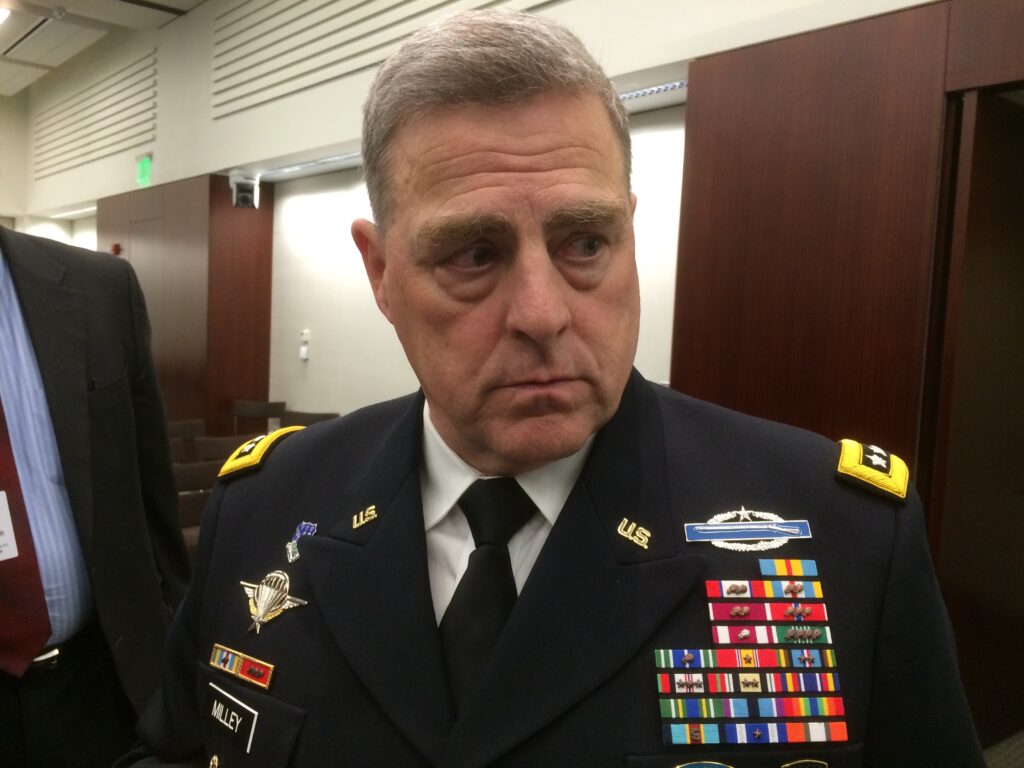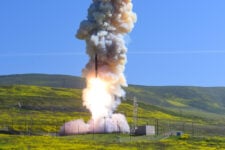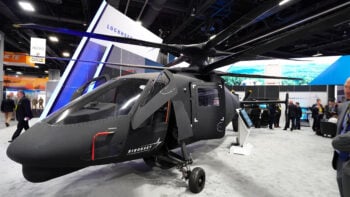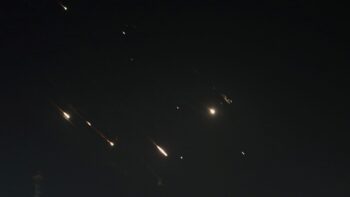
Gen. Mark Milley
CRYSTAL CITY: Army Chief of Staff, Gen. Mark Milley offered insight this morning into how the leader of the largest service is racking and stacking the Four Horseman of Pentagon analysis. Miller didn’t explicitly rank them, other than repeating that Russia is Threat No. 1, but the order of danger was pretty clear: Russia, China, North Korea, and lastly Iran.
Russia is the biggest threat because they can utterly destroy the United States. They’re the only country on Earth that’s “literally an existential threat,” because of their nuclear weapons, Milley said this morning at an Association of the US Army breakfast. Russia is also modernizing its military, with the defense budget growing by one third in less than a decade. Since 2013, they’ve been testing new armored vehicles like the Armata tank. The notoriously lumbering Red Army is reorganizing into more agile combat brigades (aka “battle groups”), roughly comparable to US brigade combat teams. And the ratio of highly motivated volunteers to reluctant draftees is climbing.
Those are Russian capabilities — but threat is the combination of capability and intentions. Unfortunately, Russia’s intentions are looking ugly too.
“Russian behavior internationally since 2008 has been aggressive,” said Milley, citing the attack on Georgia in that year, a preview of the seizure of Crimea and the invasion of Ukraine. (Arguably, the 2007 cyber attack on Estonia marked the real beginning of Russian revanchism, but that didn’t kill anybody). Russian forces are crossing international borders — overtly or covertly — and invading sovereign nations in a way Europe hasn’t seen since 1945, said Milley, with the possible exception of Soviet interventions in Hungary in 1956 and Czechoslovakia in 1968.
By contrast, China is “assertive” but not “aggressive,” Milley said, precisely because it isn’t sending its forces over sovereign borders. (The Filipinos, Vietnamese, and other South China Sea countries might disagree, but sending ships into disputed waters and even building artificial islands isn’t quite the same as sending soldiers and main battle tanks across settled international borders).
“It’s important [that] the Chinese are not an enemy,” Milley emphasized. “I would caution anyone from saying China is an ‘adversary,’ [even]. Fortunately…the Chinese take a long view.” China’s strategic patience and self-confidence contrasts with the Russians, whom Milley noted are bitter and anxious over the loss of the Soviet empire, the expansion of NATO, and the demographic disaster of an ever-shrinking ethnic Russian population.
While Chinese intentions are less aggressive than the Russians’, their long-term capabilities are greater. With the rise of China and the Asia-Pacific generally, Milley said, “we are living through…one of the largest shifts in global power in world history,” comparable to the fall of the Roman Empire or the rise of the current Atlantic-centric global economy after 1492. “History is not necessarily optimistic” about such shifts: In Harvard case studies of 18 rising powers, he said, 15 ended up at war with the incumbent major power.
There’s another big problem in the Asia-Pacific: North Korea. The increasingly erratic Hermit Kingdom is an example of mediocre capabilities coupled with clear hostile intentions to make a significant threat. Pyongyang doesn’t have the firepower of a Beijing or Moscow by any means, but it’s far more likely to use its firepower than either.
So we shouldn’t be lulled by the apparent “Groundhog Day” nature of Pyongyang’s repeated provocations, Milley said: We’ve avoided war so far for 62 years, “[but] just because it didn’t happen before is not a guarantee it won’t happen tomorrow.”
Finally, Milley turned to Iran. Its apparent compliance with the nuclear agreement is encouraging, he said, but recent provocations such as capturing US sailors and firing missiles dangerously near US vessels are not. In general, he said, “there’s no doubt Iran is a malign actor. But he didn’t seem to assign it a level of threat — that crucial combination of intent and capability — to match North Korea, let alone China and Russia.
Move over FARA: General Atomics pitching new Gray Eagle version for armed scout mission
General Atomics will also showcase its Mojave demonstrator for the first time during the Army Aviation Association of America conference in Denver, a company spokesman said.


























